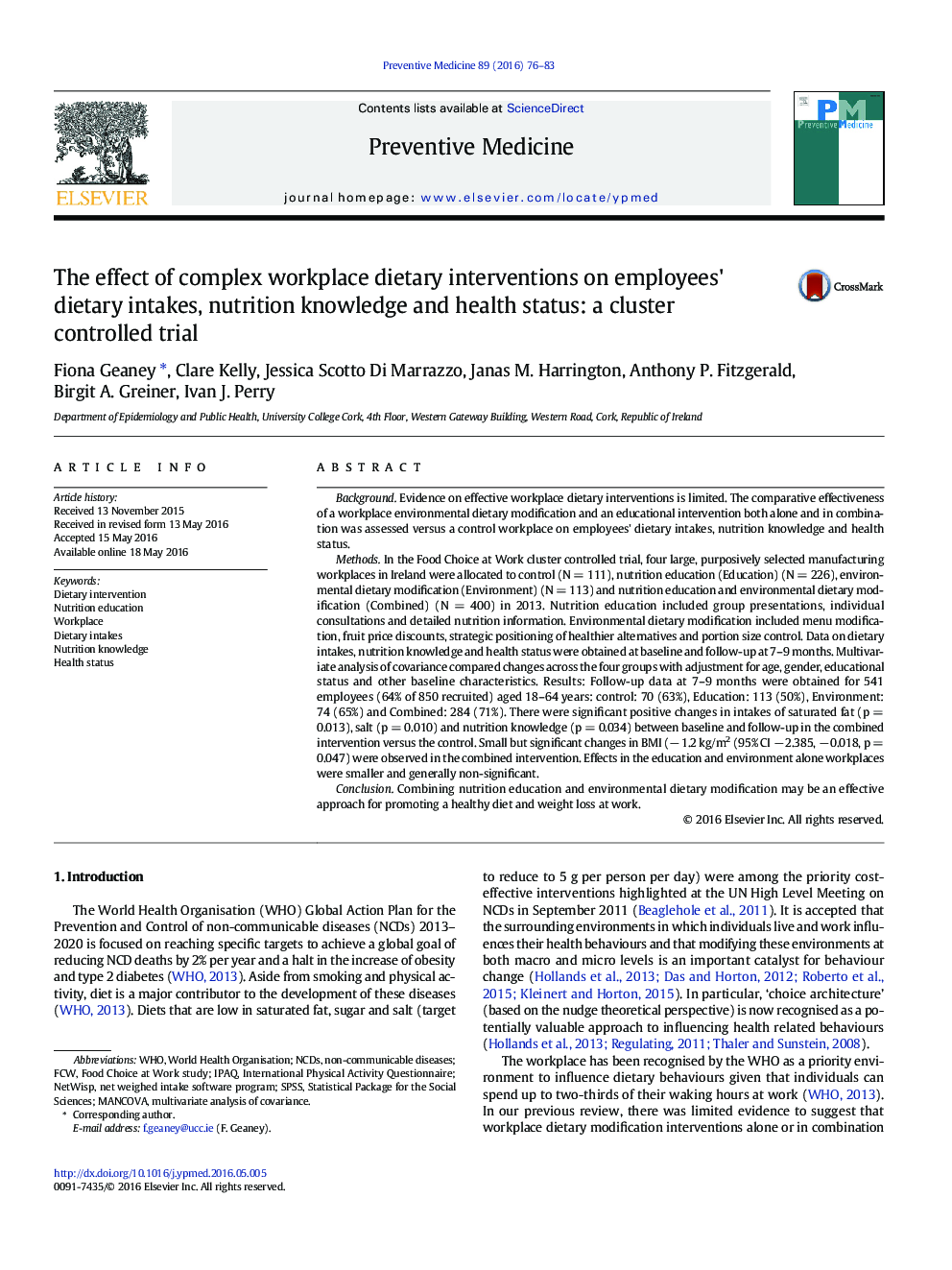| Article ID | Journal | Published Year | Pages | File Type |
|---|---|---|---|---|
| 6046184 | Preventive Medicine | 2016 | 8 Pages |
â¢Effect of workplace dietary interventions on employees' diet, knowledge and healthâ¢Environmental dietary modification and/or education interventions versus controlâ¢Cluster controlled trial with 4 selected manufacturing workplaces (541 employees)â¢Improvements in dietary intakes, knowledge and BMI in the combined interventionâ¢Environmental dietary modification and education promotes healthy eating and weight loss at work.
BackgroundEvidence on effective workplace dietary interventions is limited. The comparative effectiveness of a workplace environmental dietary modification and an educational intervention both alone and in combination was assessed versus a control workplace on employees' dietary intakes, nutrition knowledge and health status.MethodsIn the Food Choice at Work cluster controlled trial, four large, purposively selected manufacturing workplaces in Ireland were allocated to control (N = 111), nutrition education (Education) (N = 226), environmental dietary modification (Environment) (N = 113) and nutrition education and environmental dietary modification (Combined) (N = 400) in 2013. Nutrition education included group presentations, individual consultations and detailed nutrition information. Environmental dietary modification included menu modification, fruit price discounts, strategic positioning of healthier alternatives and portion size control. Data on dietary intakes, nutrition knowledge and health status were obtained at baseline and follow-up at 7-9 months. Multivariate analysis of covariance compared changes across the four groups with adjustment for age, gender, educational status and other baseline characteristics. Results: Follow-up data at 7-9 months were obtained for 541 employees (64% of 850 recruited) aged 18-64 years: control: 70 (63%), Education: 113 (50%), Environment: 74 (65%) and Combined: 284 (71%). There were significant positive changes in intakes of saturated fat (p = 0.013), salt (p = 0.010) and nutrition knowledge (p = 0.034) between baseline and follow-up in the combined intervention versus the control. Small but significant changes in BMI (â 1.2 kg/m2 (95% CI â 2.385, â 0.018, p = 0.047) were observed in the combined intervention. Effects in the education and environment alone workplaces were smaller and generally non-significant.ConclusionCombining nutrition education and environmental dietary modification may be an effective approach for promoting a healthy diet and weight loss at work.
